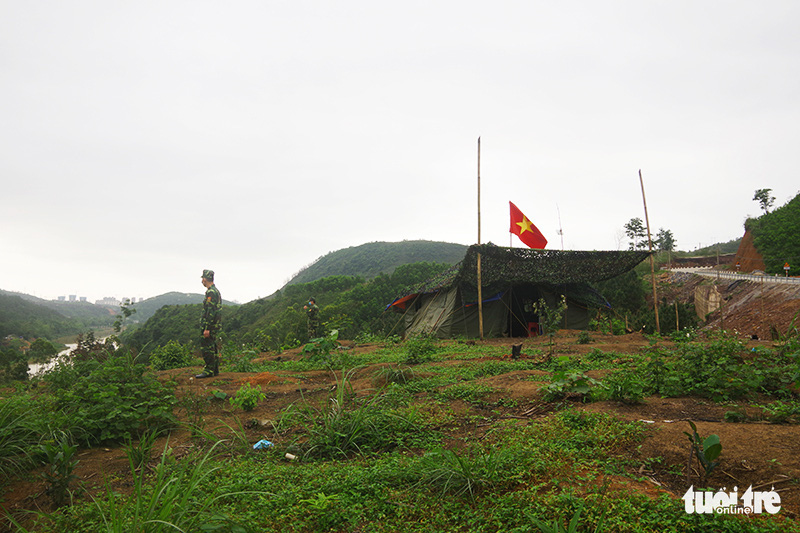Increasingly reported cases of illegal entry along Vietnam’s northern border with China have complicated the country’s efforts to prevent a second wave of novel coronavirus disease (COVID-19), as its 99-day streak of no local transmission was broken over the weekend.
Many people have been caught entering Vietnam against the law on land as well as at sea over the past months.
An official from the Coc Nam Border Guard Office in northern Lang Son Province told Tuoi Tre (Youth) newspaper on Sunday that supervision and management along the local border have remained tightened since the epidemic broke out in early 2020.
A total of 16 checkpoints have been established to prevent illegal entry and other crimes in the border area.
However, smugglers have been blazing dozens of new trails from China into the Vietnamese province, making the job of thinly stretched border guard officers much more difficult.
The Coc Nam Border Guard Office has detected two cases of illegal entry since the beginning of July and made arrests of five Chinese suspects. All of them have been handed over to authorities in China.
According to another border guard official in Lang Son, suspects in both China and Vietnam have been colluding to arrange for people to enter the Southeast Asian country unlawfully.
Meanwhile, the Tra Co Border Guard Office in the northern province of Quang Ninh reported they had busted five cases of illegal border crossing involving five Vietnamese and 12 Chinese nationals since June.
Authorities in Hai Ha District and Mong Cai City in Quang Ninh have also recorded hundreds of similar cases.
Most of the people crossing the border were Vietnamese citizens who had been working illegally in China or been married to Chinese husbands, while the rest were Chinese nationals.
Since the beginning of this month, Quang Ninh authorities have discovered ten separate cases where 127 people attempted to cross the China-Vietnam border illegally.
Many Chinese suspects claimed they had planned to sneak into the Vietnamese province to organize gambling at local hotels.
Without undergoing mandatory COVID-19 quarantine as per Vietnam’s regulations, such illegal aliens pose a risk of spreading the coronavirus into Vietnam while those detected place pressure on the capacity of local isolation facilities.
The Quang Ninh People’s Committee has ordered relevant agencies to tighten management along the border as one of the important tasks in COVID-19 prevention and control efforts.
Vietnam recorded its first local transmission of COVID-19 after 99 days on Saturday, a Da Nang resident who had not traveled outside of the central city in a month.
Fourteen more cases have since been confirmed in Da Nang and the central province of Quang Ngai, including 11 announced on Monday who were all linked to Da Nang Hospital where the initial patient had visited this month.
Acting Minister of Health Nguyen Thanh Long said Monday the virus strain detected in the new wave of patients is not among the five strains of the novel coronavirus previously identified in Vietnam.
Like us on Facebook or follow us on Twitter to get the latest news about Vietnam!




















































